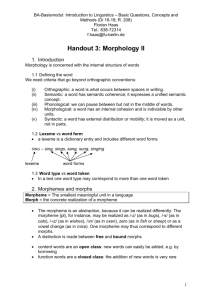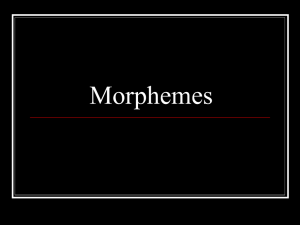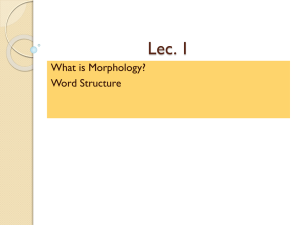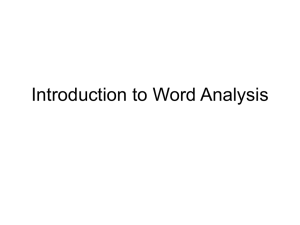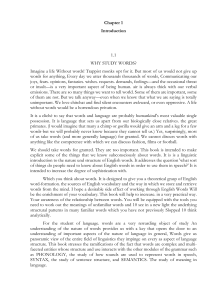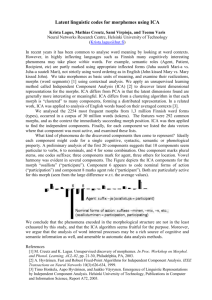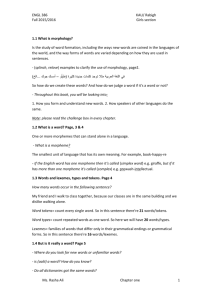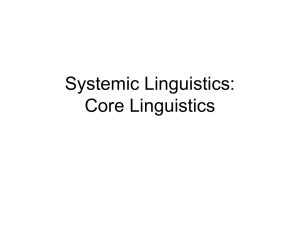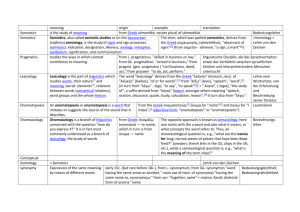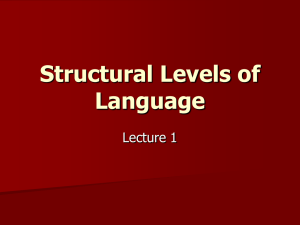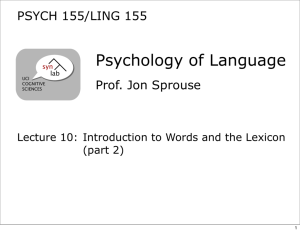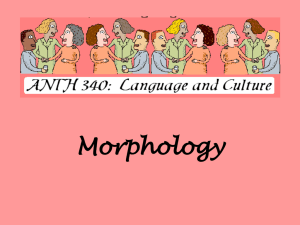MORPHOLOGY
advertisement
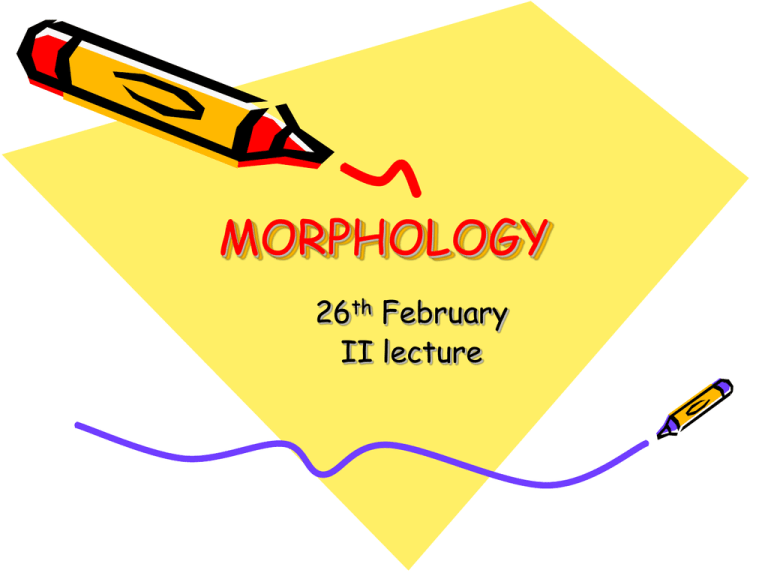
MORPHOLOGY 26th February II lecture Today’s (wishful) plan What is a word? Word-forms Lexemes Grammatical words Inflectional and derivational morphology What are words made up of? Morphemes, morphs and allomorphs Free and bound morphemes Phonaesthemes and onomatopoeia How languages treat words and morphemes Isolating Agglutinating Inflecting - synthetic Polysynthetic languages What is a word? • Intuitive notion • writing is easy – orthographic words: Most kids went to school yesterday, but my kid didn’t go, he stayed at home with a stomachache. • What about speech? Hm… …more… • Word in one language is not a word in another Paiute: Wu-to-kuchum-punku-rugani-yugwiva-ntu-mu “they who are going to sit and cut up with a knife a black bull” Turkish: everinde “in their house” Serbian: vladah “I used to rule” English: easy-to-use dishes • set of criteria by which we can diagnose an item as a word – a phonological word • Content words and function words • Stress pattern • Ordering of elements within a word or a phrase (doctor’s bag, the bag of the doctor) • Morphological conditioning (ox – oxen) • phonotactic rules Word forms and lexemes Most kids went to school yesterday, but my kid didn’t go, he stayed at home with a stomachache. Kid = child - lexeme Kids, kid – representation – word form Go = meaning to move - lexeme Go, went – representation – word form • Write – write, writes, writing, wrote, written • Smart – smart, smarter, smartest • Cat – cat, cats • Good – good, better, best • A word-form can belong to different lexemes – homonyms (serve) • If only the phonemic representation is the same – homophones (hoarse, horse) • Polysemy – closely related meanings of the same word-form (force) • Context, ambiguity, relevance Grammatical words • Words from grammatical perspective • Morpho-syntacitc words Representations (word-forms) of lexemes which fill in a certain syntactic place I saw the sheriff after I had seen the deputy. • Syncretism: You hit me. Morphology Inflectional • Child, children • Break, broke, broken (word-forms, paradigms) Derivational • Child-childhood • Nation - nationalize Morpheme, morph, allomorph UNTOUCHABLES un-touch-able-s un – negation touch – meaning -able – assigns the quality of X -s – the marker of plurality • MORPHEME – the minimal unit of grammatical analysis • Morphemes are realized as MORPHS, either as a phonetic or orthographic form MORPH is a segment of a word-form which represents a particular morpheme • • • • This cow is eating grass. These cows are eating hay. Can you substitute cow with cows? What about sheep? • WAS – cannot be segmented, but it is a morpheme = BE + PRETERITE (past tense) + SIGULAR at the same time • PORTMANTEAU MORPH – Think about: radila – raditi+past+feminine+singular – Stolovima? ALLO what? • ALLOMORPHS! • Phonologically, lexically or grammatically conditioned realizations of the same morph • Books, churches, boys • imperfect, irregular, illiterate • Books vs. oxen • Article in German (conditioned by the gender of the noun) Free and Bound • Free morphs can occur in isolation (can also be word-forms) • Bound morphs can only occur in conjunction with at least one other morph • • • • • • • Blender Happiness Unhappy Unbelievably Denationalization Volim nismo
